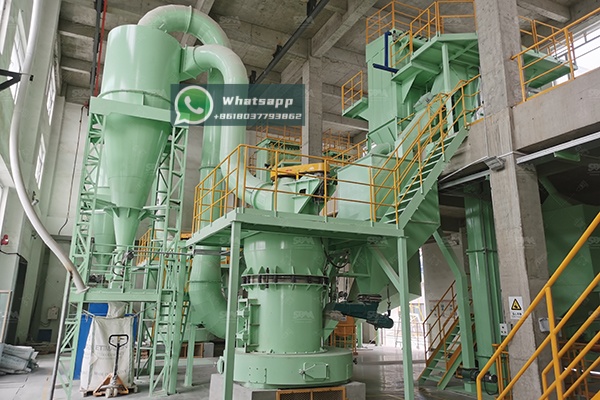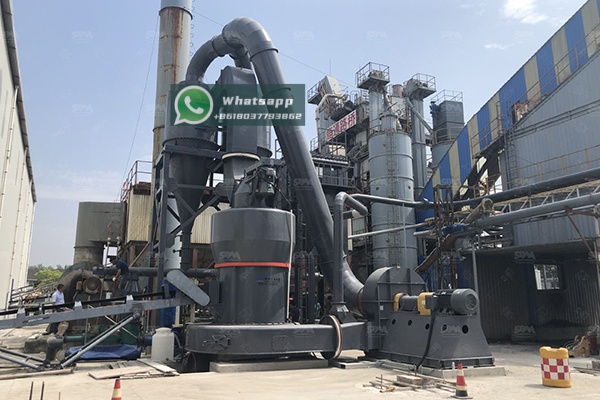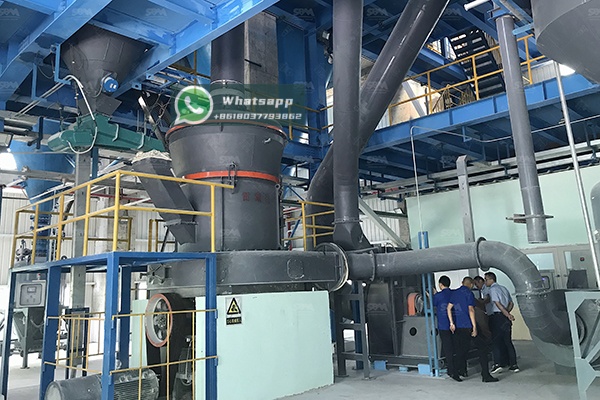The PVC window profile and siding industry represents one of the most demanding applications for mineral fillers. As manufacturers strive to produce durable, weather-resistant, and cost-effective building materials, the quality of calcite (calcium carbonate) used as a filler becomes paramount. Calcite improves mechanical properties, enhances weatherability, reduces material costs, and provides the desired whiteness and surface finish. However, achieving the precise particle size distribution, purity, and surface characteristics required by this sophisticated industry demands advanced grinding technology specifically designed for ultra-fine powder production.

Calcite grinding for PVC window profiles and siding involves more than simple size reduction. The process must achieve specific technical objectives that directly impact the final product quality. The ideal calcite filler for PVC applications typically requires a fineness between 400-800 mesh (D97), with a tightly controlled particle size distribution to ensure optimal dispersion within the polymer matrix. This fine grinding improves impact strength, surface smoothness, and extrusion characteristics while maintaining the material’s cost-effectiveness.
The grinding process must also preserve the crystal structure of calcite to maintain its reinforcing properties. Over-grinding can lead to particle agglomeration and reduced performance, while under-grinding results in poor surface finish and compromised mechanical properties. Additionally, the grinding system must efficiently remove moisture and maintain chemical purity to prevent degradation of the PVC compound during processing and throughout the product’s service life.
Traditional grinding equipment often falls short of meeting the stringent requirements of the PVC industry. Ball mills, while capable of fine grinding, typically produce broad particle size distributions and suffer from high energy consumption. Raymond mills struggle to achieve the ultra-fine specifications needed for high-quality PVC profiles. Hammer mills are generally unsuitable due to their limitation in producing fine enough particles and their tendency to generate excessive heat, which can affect calcite properties.
The most significant challenges include inconsistent product quality, high energy consumption, excessive wear on grinding components, and difficulty in controlling the grinding environment to prevent contamination. These limitations have driven the development of specialized grinding solutions that can deliver the precision, efficiency, and reliability demanded by modern PVC manufacturers.

Shanghai Zenith Machinery Co., Ltd. has established itself as a leader in industrial powder grinding equipment, with particular expertise in solutions tailored for the calcium carbonate industry. Our extensive research and development efforts have produced grinding systems specifically optimized for producing the high-quality calcite fillers required by the PVC window profile and siding industry.
For PVC-grade calcite production, the LUM Ultrafine Vertical Mill represents the pinnacle of grinding technology. This advanced system integrates multiple functions including grinding, drying, classification, and conveying in a single, compact unit. The LUM series is specifically designed to produce powders with high content of end-fines and features intelligent control systems for precise operation.
The LUM mill’s unique grinding mechanism ensures minimal heat generation, preserving the crystal structure of calcite while achieving the desired fineness. The integrated classifier allows for precise control over particle size distribution, a critical factor for PVC applications. Additionally, the system’s efficient drying capability ensures moisture content remains below 0.2%, exceeding industry requirements.
| Model | Main machine power (kW) | Capacity for Calcite (t/h) | Size distribution D97 (μm) | Moisture Content |
|---|---|---|---|---|
| LUM1525 | 220-250 | 1.6-11.5 | 5-30 | <0.2% |
| LUM1632 | 280-315 | 2.0-13.5 | 5-30 | <0.2% |
| LUM1836 | 355-400 | 2.3-15 | 5-30 | <0.2% |
For operations requiring flexibility across different mineral applications, the XZM Ultrafine Grinding Mill offers excellent performance for calcite grinding. This mill is particularly well-suited for medium-scale production and can achieve fineness levels from 325 to 2500 mesh, making it ideal for operations that serve multiple industries beyond PVC manufacturing.
| Model | Working diameter (mm) | Max feed size (mm) | Final size (mesh) | Output (kg/h) | Main motor power (kW) |
|---|---|---|---|---|---|
| XZM221 | Φ800 | ≤20 | 325-2500 | 500-4500 | 75 |
| XZM268 | Φ1680 | ≤20 | 325-2500 | 5000-25000 | 315 |
Shanghai Zenith’s grinding equipment offers several distinct advantages specifically beneficial for PVC window profile and siding manufacturers:
The advanced classification systems in both the LUM and XZM mills ensure tight control over particle size distribution. This precision is critical for PVC applications where inconsistent filler particle size can lead to extrusion problems, surface defects, and reduced mechanical properties. The ability to consistently produce calcite with D97 values between 15-38μm (400-800 mesh) makes these systems ideal for high-quality PVC production.
Compared to traditional grinding systems, Zenith’s vertical mills offer significantly higher energy efficiency. The vertical design reduces energy consumption by 30-50% compared to ball mills of similar capacity. This efficiency translates directly to lower operating costs for calcite producers, making their products more competitive in the PVC market.
The grinding chambers and components of Zenith mills are designed to minimize metal-to-metal contact and incorporate advanced sealing systems that prevent lubricant contamination. This design ensures the final calcite product maintains the high chemical purity required for PVC applications, where impurities can catalyze degradation reactions affecting long-term durability.

A leading European PVC window profile manufacturer recently transitioned to calcite produced using Shanghai Zenith’s LUM1836 Ultrafine Vertical Mill. The results demonstrated significant improvements in several key performance indicators:
This case study illustrates how advanced grinding technology directly contributes to enhanced product quality and manufacturing efficiency in the PVC industry.
The PVC window profile and siding industry continues to evolve, with increasing demands for sustainability, energy efficiency, and enhanced performance. Shanghai Zenith Machinery is committed to advancing grinding technology to meet these future challenges. Current research focuses on even more energy-efficient systems, intelligent grinding controls using AI and IoT technologies, and solutions for producing specialized surface-modified calcite fillers.
The integration of real-time particle size monitoring and adaptive control systems will enable unprecedented consistency in calcite production. Additionally, developments in grinding media and liner materials promise extended equipment life and further reductions in contamination risk.
The quality of calcite filler is a critical factor in determining the performance, durability, and cost-effectiveness of PVC window profiles and siding. Shanghai Zenith Machinery’s advanced grinding solutions, particularly the LUM Ultrafine Vertical Mill and XZM Ultrafine Grinding Mill, provide the precision, efficiency, and reliability needed to produce calcite that meets the exacting standards of this industry.
By partnering with Shanghai Zenith, calcite producers and PVC manufacturers can ensure consistent quality, optimize production costs, and maintain competitiveness in a demanding market. Our technical expertise and continuous innovation in grinding technology support the ongoing advancement of the PVC building products industry worldwide.